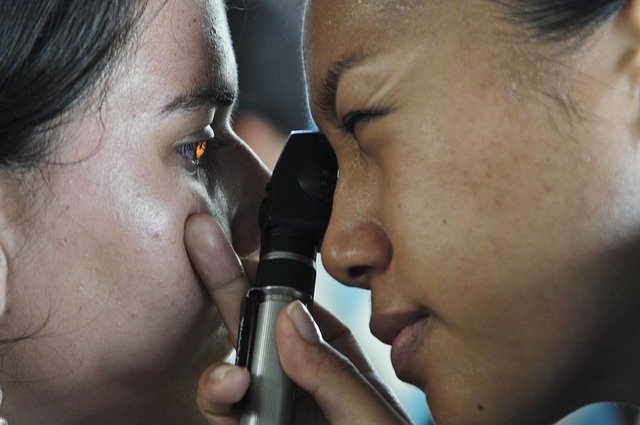Family Nurse Practitioner Career Opportunities and Requirements
Family nurses provide healthcare across all ages, from children to seniors. Becoming one requires a nursing degree, licensure, and often advanced training in family practice. They play a central role in preventive care and long-term health management.

How to Become a Family Nurse Practitioner
The path to becoming a family nurse practitioner requires dedication and extensive education. You must first obtain a Bachelor of Science in Nursing (BSN) and pass the NCLEX-RN examination to become a registered nurse. After gaining clinical experience, typically one to two years in various healthcare settings, you can pursue a Master of Science in Nursing (MSN) or Doctor of Nursing Practice (DNP) with a family nurse practitioner specialization.
During your advanced degree program, you’ll complete coursework in advanced pathophysiology, pharmacology, and health assessment. Clinical rotations provide hands-on experience in family medicine, pediatrics, geriatrics, and women’s health. Most programs require 500 to 700 hours of supervised clinical practice before graduation.
Family Nurse Jobs Available in Healthcare Settings
Family nurse practitioners find employment opportunities across diverse healthcare environments. Primary care clinics, family medicine practices, and community health centers frequently hire family nurse practitioners to provide routine care, preventive services, and chronic disease management. Hospital systems employ these professionals in emergency departments, urgent care facilities, and specialty clinics.
Rural healthcare facilities often rely heavily on family nurse practitioners to address physician shortages and provide essential medical services to underserved populations. Telehealth companies increasingly recruit family nurse practitioners for virtual consultations, expanding access to care for patients in remote areas. Some practitioners choose to establish independent practices or work in retail health clinics within pharmacies and grocery stores.
Complete Family Nurse Practitioner Guide Requirements
Certification requirements vary by state, but all family nurse practitioners must pass a national certification examination administered by either the American Academy of Nurse Practitioners Certification Board or the American Nurses Credentialing Center. Maintaining certification requires continuing education credits and periodic recertification examinations.
State licensing boards establish specific requirements for nurse practitioner practice, including prescriptive authority and collaborative agreements with physicians. Some states grant full practice authority, allowing family nurse practitioners to evaluate, diagnose, and treat patients without physician oversight. Others require varying degrees of physician collaboration or supervision.
Professional development continues throughout your career through specialized training, additional certifications, and advanced degrees. Many family nurse practitioners pursue subspecialty certifications in areas such as dermatology, psychiatry, or diabetes management to enhance their expertise and marketability.
| Education Level | Average Annual Salary | Years of Experience Required |
|---|---|---|
| New Graduate FNP | $95,000 - $110,000 | 0-2 years |
| Experienced FNP | $110,000 - $130,000 | 3-7 years |
| Senior Level FNP | $130,000 - $150,000+ | 8+ years |
Prices, rates, or cost estimates mentioned in this article are based on the latest available information but may change over time. Independent research is advised before making financial decisions.
Career Advancement and Specialization Options
Family nurse practitioners can advance their careers through various pathways. Leadership positions in healthcare organizations offer opportunities to influence policy, manage clinical teams, and improve patient care delivery systems. Academic roles in nursing schools allow experienced practitioners to educate the next generation of nurses and conduct research.
Entrepreneurial family nurse practitioners may establish their own practices, offering direct primary care services or specialized wellness programs. Some pursue additional certifications in complementary fields such as functional medicine, nutrition counseling, or mental health therapy to expand their service offerings and patient appeal.
Professional Challenges and Rewards in Family Nursing
Working as a family nurse practitioner presents both challenges and rewards. The role demands continuous learning to stay current with medical advances, treatment protocols, and technology innovations. Managing diverse patient populations requires cultural sensitivity and adaptability to meet varying healthcare needs and preferences.
The profession offers significant personal satisfaction through building long-term relationships with patients and families. Family nurse practitioners often serve as primary healthcare coordinators, helping patients navigate complex medical systems and access appropriate specialists when needed. The ability to make immediate impacts on patient health and well-being provides meaningful career fulfillment.
Family nurse practitioners enjoy competitive compensation, professional autonomy, and flexible scheduling options that support work-life balance. The growing healthcare industry ensures strong job security and numerous advancement opportunities for qualified professionals committed to providing quality patient care.
This article is for informational purposes only and should not be considered medical advice. Please consult a qualified healthcare professional for personalized guidance and treatment.




